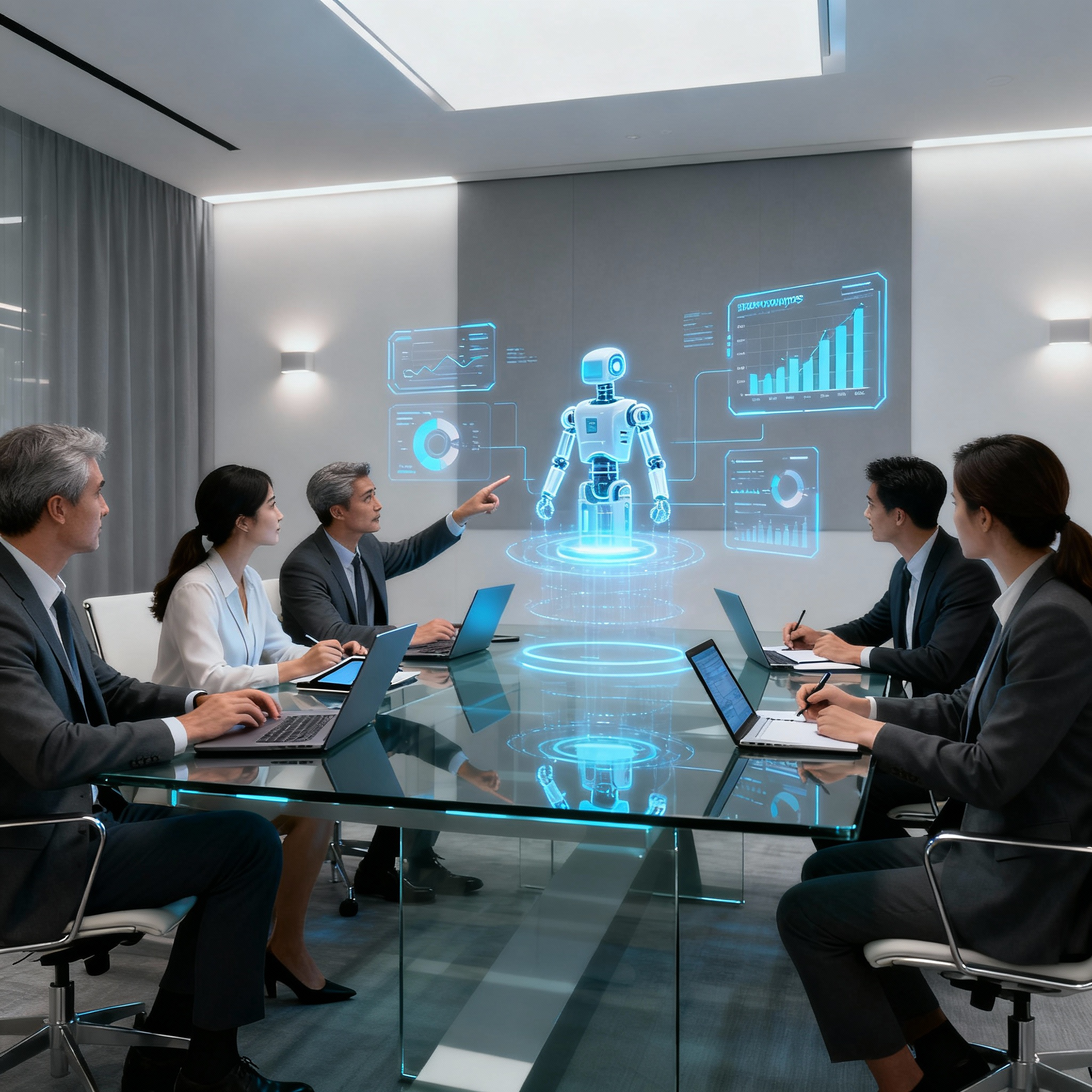
As industries embrace unprecedented digital transformation, 2025 marks a key inflection point where humans and intelligent machines collaborate more closely than ever. Emerging technologies—especially artificial intelligence (AI), process automation, and the Internet of Things (IoT)—are driving an era of adaptability, productivity, and innovation.
1. AI Becomes a Strategic Partner
Experts predict that AI in 2025 will evolve beyond support tools into fully integrated strategic partners. Intelligent agents powered by multimodal AI will autonomously analyze data, refine processes, and execute decisions in real time. According to the IEEE’s 2025 predictions, systems will act as human collaborators, capable of context-driven reasoning across industries from logistics to law. This human-AI collaboration will not replace roles—it will redefine them, unlocking efficiencies while keeping creativity at the center.
2. The Age of Autonomous Operations
Automation is shifting from routine rule-based processes to adaptive, cognitive workflows. Agentic AI systems—capable of executing multi-step tasks independently—will dominate business operations by 2028, handling everything from supply chain forecasting to finance approvals. Gartner reports that businesses adopting intelligent process automation will cut operational costs by over 30%, proving that automation is no longer about efficiency—it’s about strategic agility.
3. Industrial Automation Reimagined
For manufacturing and industrial operations, the convergence of AI, robotics, and IIoT (Industrial Internet of Things) is bringing about a new “smart production” ecosystem. Predictive maintenance driven by connected sensors and machine-learning algorithms prevents downtime and optimizes performance. Collaborative robots, or cobots, will continue to expand human-machine synergy, performing high-precision tasks while adapting in real time to operator behavior.
4. Responsible and Ethical AI Adoption
As reliance on automation grows, experts emphasize that responsible AI governance will define future success. Transparent algorithm design, ethical data practices, and compliance frameworks will become non-negotiable. McKinsey’s 2025 tech outlook highlights “Responsible AI” as a boardroom priority, urging companies to balance innovation with accountability and fairness.
5. Hyper-Connected Process Ecosystems
By 2025, IoT-enabled networks will connect people, processes, and assets into unified systems that communicate seamlessly. Real-time data sharing across devices will allow organizations to respond instantly to market changes. Process automation platforms will merge with IoT analytics dashboards to create continuous optimization loops for supply chains, logistics, and energy management.
6. The Emergence of Plug-and-Produce Systems
The rise of modular “plug-and-produce” automation systems allows businesses to integrate new technologies faster than ever. These preconfigured, scalable units enable instant system deployment without costly downtime, especially valuable for small and medium manufacturers seeking rapid modernization. This trend symbolizes the democratization of automation—innovation for all business sizes.
7. The Workforce of the Future: Augmented, Not Replaced
Experts agree that automation will not eliminate jobs but transform them. By 2025, 60% of workers will use AI or automation tools daily to enhance productivity, creativity, and precision. The focus will shift to “digital craftsmanship”—where human adaptability and technical fluency combine to deliver higher-quality outcomes across sectors.
Conclusion: Adaptation Is the New Innovation
The future belongs to businesses that actively harmonize human intelligence with machine precision. As automation, AI, and IoT reshape industries, success will depend not on tools alone but on how seamlessly organizations integrate them into their culture and operations.
In 2025, the most forward-thinking companies are those that view technology not merely as infrastructure—but as an evolving partner in human progress.

